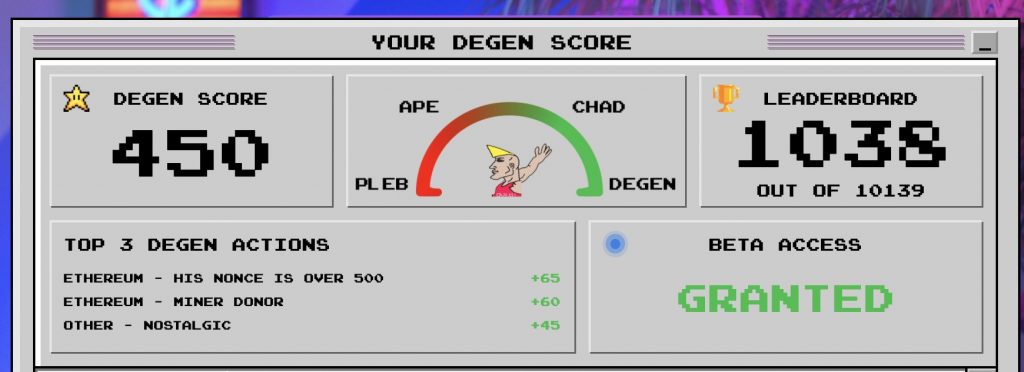
How To Find A Job In Web3 In 8 Steps
The Simple Web3 Career Guide
The jobs market in the tech sector of the 2020s decade will forever be reflected upon as a decentralised revolution that brought renewed opportunities for all markets and industries. Read how we’ve broken down a crypto job hunt into 8 steps for you to get ahead in your crypto career.
Why finding a job in crypto is important.
If you care about how global markets and communities are affected by monetary policies, obscure regulations and systems that perpetually favours the wealthy while ignoring the everyday person, then a career in crypto should be on your radar.
This decade nicknamed “the roaring twenties” will forever be reflected on as the decade which changed every industry in the world and was freed by blockchain technology and allowed us to reorganise ourselves and the things that we cared about.
The changes will affect everybody, whether you work as an accountant, a lawyer, a small shop owner or an office admin. If this sounds a little far fetched, then recall how many industries were changed by the implementation of the 90’s protocols HTTPS (The Web Browser) and SMTP (The Email). Can you name a single business around the world that hasn’t used Web Browser or Email directly or indirectly?.
Most work in the future will be governed through Decentralised Automated Organisations (DAOs) and company shareholders will also be customers thanks to holding the company’s Crypto Token or Non-Fungible Token (NFT).
Operations can be managed much more efficiently by the decentralised internet ledgers, a blockchain.
Meaning that even musicians who use a blockchain decentralised app (dApp) to upload and distribute their music, will be able to track sales, protect their royalties and get a fair deal by using an NFTs or Crypto Token to manage their career instead of a centralised and often parasitical agent. The way in which we work is changing and establishing yourself as a professional in your field as it relates to the crypto industry will put you 10 years ahead of your peers.
FYI’s for working in crypto.
- The crypto industry is resilient against unpredictable public health issues like global pandemics because most work is done online remotely.
- The crypto industry is still in its infancy. As of October 2021, the global financial markets accumulated an equal $22.5 trillion. Compared to the total crypto market cap which is just $2 trillion yet has the power to absorb at least 30% of the global financial market value.
- Linkedin and other job platforms have reported the search for crypto-related jobs such as “Blockchain Developer” has increased significantly in the last 2 years and is projected to 30% more job positions up until 2024. This is approximately 2000 job positions to 60,000.
- Those who currently work in a crypto job for their respective career earn 50% more than their non-crypto related colleagues.
- You can bring your current career into crypto or become a developer within 3-5 months by studying coding.
- You can find your profession in the crypto industry, here are a few examples of jobs positions in demand:
Sales, Marketing, Graphic Designers, UX Designer, Customer Support, Developers, Lawyers, Investors, HR Managers, Talent Acquisition, Social Media Manager, Artists and many new positions that open up every day.Think in terms of what a business will need to run efficiently and deliver its products to the market.
The 8 Step Breakdown to
Finding a Job in Crypto
Here, we’ll break down the steps to finding a job in the crypto industry. Ensure that you take notes and be open-minded to the information, as there are new and unorthodox methodologies to job acquisition within this industry thanks to the domination of Millennial, Generation Y and Z company owners.
8
Requirements to work in crypto.
- 1. One of the first and most important requirements of getting a job in the crypto industry is to have an in-depth knowledge of cryptocurrency, blockchain, general tech knowledge and the philosophies that sparked the industry.
You don’t have to be a cryptographer but understanding why the core aspects of crypto movement exists for a fair, secure internet is vital.
A good starting place would be to read books such as ”The White Paper” by Satoshi Nakamoto, ‘The Bitcoin Standard’ by Saifedean Ammous or newly released books by journalists and influencers such as ‘Undressing Bitcoin’ by Layah Heilpern.


2. There’s a lot of jargon that circulates the cryptosphere that baffle most “no-coiners”. Internet-acronym-speak like ‘LOL’, ‘DMs’, ‘BRB’, ‘ORLY’, ‘TBT’ dominates the internet like a second language and crypto has its own set of terms.
If you don’t understand the following sentence then you’re probably “NGMI”:
“If we whitelist for the new NFT airdrop on BSC then WAGMI,
don’t sell just HODL while the team BUIDL out the platform, feel free to join my AMA.”There are huge libraries of terms where you can study the lingo and the technical terms such as on Binance Glossary.
- 3. You’ll need to keep up with the news and general activity in the crypto industry and things literally change day by day. Small changes to localised regulation in one country can affect the entire crypto market in both a positive and negative direction.
For example, if you were aware of the SEC’s ICO (Initial Coin Offering) crackdown of 2017, you would know not to apply at any crypto company at that period of time.
You’ll be able to keep up with news updates by following the right sources of information such as publications and social media influencers:A few of our favourites are:
Media Publications
Coin Telegraph
Bitcoin.com News
Coinbase Blog
Coin Desk
Decrypt
(Links are not sponsored)Youtube Influencers
Bitboy Crypto
Coin Bureau
Ivan On Tech
Elliot Trades
Layah Heilpurn
Alt Coin Daily
Lark Davis - 4. You’ll need fluency in English. Despite crypto being a global movement with huge popularity from Japan, Sweden, Africa, Singapore and more, a lot of projects are pushed to English speakers.
This is likely because the internet’s native language is English, as it was first an American initiative.
However, as crypto becomes mainstream we’ll have projects that are built only for local foreign communities and will be built in their native tongue. - 5. Communication skills are vital. Just as working in any company, you’ll need to be a good communicator. This fact is compounded by the effect of remote working, which typically puts a strain on communication.
- 6. Work experience will put you ahead of the crowd, a person who’s actually worked with a team or on their own project will be able to demonstrate their experience.
A suggestion here could be to offer your services for free to a crypto project in order to build up your portfolio, whether you’re an accountant doing an audit or a lawyer providing guidance around regulations, you’ll always have something to offer.
7
Where you should apply for crypto job positions.
- 1. The best advice on finding a crypto job is not to use the big job boards and recruitment companies such as Indeed, Total Jobs and the like, but companies dedicated to providing crypto-related job intel (like Arubaito).
As we care about promoting and expanding the crypto industry as much and fast as possible, we’ll share with you other crypto job boards which may have opportunities that you won’t find on Arubaito.
But do note that we’re serious about uniting crypto communities with company cultures with the use of technology, so we’ll always be on cutting-edge and there may be things that we could do for you a little better than our recruitment peers.
Crypto Recruitment Boards
Crypto Careers
Cryptocurrency Jobs
Crypto Jobs
Crypto Lancer
Crypto Careers
Pomp Crypto Jobs
Proof of Talent - 2. Another option is to see if the crypto companies that you know have any positions open. You can do this by going to their website where they’ll usually have a jobs application page with their available positions.
Bluechip crypto companies such as Binance or Coinbase always have positions open for various roles.
Other than looking on their web pages, you can get in touch with their team and admins via Telegram and Discord.
- 3. A new forefront in work through Decentralised Automated Organisations (DAOs) have temporary employment through governance cryptocurrency projects. By visiting the website and following the various channels, you’ll find plenty of positions opening all of the time. Think of this as a type of town hall in the metaverse and is one of the most exciting prospects and peak into the future of work.
Discover Web3 Companies.
Want to find new crypto companies to apply for work with? See our daily growing list of crypto companies here.
6
Freelancing
Try going freelance. Whichever your profession, there will be a viable path to taking your services independently in a freelance capacity.
Many crypto companies are startups who are within their first 5 years of trading infancy, therefore if there’s a way for them to ‘write-off’ an expense and mitigate risk, they’ll take it.
Therefore, hiring a freelancer on a contract rather than dedicating themselves to a long term employment can be a relief to their long term financial responsibilities.
This also means you can ask a higher bid on your services compared to if you were an employee and typically that’ll be a lot higher than if you were a regular non-crypto related position.
With freelancing in mind we’ve added the ability for you to add links to your online CV’s with your Arubaito account. You can link your portfolio, past projects, social medias, website and hyperlinks of your choice.
When you apply for jobs, your potential crypto employer will have all the links delivered to their email inbox and have the option to view your CV profile on Arubaito.
You can write an unlimited amount of resumes tailored to the position or company that you’re applying to, here.
5
Write a 'Crypto CV'
- You’ll need to write a CV that’s specifically tailored to crypto and the market that your crypto company is in and the position that you would like to fill. For example, if you have a background in digital marketing and have an extensive background across many social media marketing platforms, perhaps you’ll want to just speak about your experience in YouTube and Twitter digital marketing, as most crypto companies use those platforms for promotion.
How to write an outstanding CV:
When putting out a job placement, a hiring manager will receive approximate of 250 applications for the position and they’ll typically be managing 4-8 positions at a time.
They look through the average of 100 CVs per day and look at each individual CV for roughly 7 seconds, this means you’ll have to capture a hiring manager’s attention within that limited timeframe.You can read our Crypto CV Guide that helps you to Get ahead of 70% of other job applicants.
Here’s a short summary from the Crypto CV Guide:
Contact Info In the header add your name, local phone number, professional email address, LinkedIn and other relevant social media contacts. Professional Summary Write a summary of your professional life, intentions and personal goals. You can touch upon what you’d like to contribute to the company and society at large. Education List relevant education, school, college, university, courses and studies. Work Experience Work experience is the most crucial part of your CV, tailor your past work experience to the job position and include relevant personal projects. Ensure that you write this in a quantitative sentence that shows your experience as a tangible statistic. Relative Skills List skills relevant to the job and crypto-related know-how, for example, being able to mint an NFT from a smart contract or providing liquidity into a staking pool using MetaMask. Additional Information You can be creative with this information, this section will create the human connection between yourself and the person reading your CV. Include hobbies, achievements, special skills e.g. hosting a Bitcoin node etc. - Build your On-Chain Resume.
You may have already been building an extensive On-Chain Resume without even knowing it.
An On-Chain Resume is summary of your participation in blockchain activities as recorded in your wallet address. Whether this is staking coins to receive yield or participating in a Dutch-Auction on Balancer, your wallet is proof of your on-chain experience.
By submitting your wallet address with your CV under ‘On-Chain Resume’, you’ll be able to prove your experience.
A ‘Degen Score’ is a good indicator of your experience as it summaries your experience into an output number per wallet address, some people have been hired on their Degen Score alone.
Find your score by connecting your wallet on DegenScore.com

The ‘Degen Score’ interface. We’ve added a section on your Arubaito CV where you can include your On-Chain Resume, just enter your wallet address of your choice and it’ll be displayed.
If your wallet address is an Ethereum address, it’ll transform into a link using Zerion.com that beautifully displays your overview and transaction history in a ledger-like format.

Write An Outstanding Web3 CV.
We wanted to cherry-pick your best qualities, skills, and work experience and put them at the forefront. So using a combination of marketing research and marketing psychology we integrated the best of all worlds into Arubaito’s Online Profile CVs.
Add links, On-Chain Resume, and apply for jobs directly. Get discovered by registered Arubaito Employers.

4
Be part of crypto communities.

Make sure to actually be involved within the crypto community in some shape or form. You’ll have the opportunity to make many new friends and associates within the space by just taking part in activities.
Most of the action in crypto happens on platforms such as Discord, Telegram and Twitter (hence the term Crypto Twitter).
Mysterious things happen in the the crypto industry and metaverse which transcends the normal world; Hackers give back stolen funds, a 14 year-olds code DeFI banking systems and dog coins can hit a $30 billion total valuation.
The rules are new and anything goes including your method of looking for work.
Many positions have been filled by just speaking with the team members and forming a relationship over the Discord app. The crypto industry truly appreciates community and will give opportunities first to those who are part of the community itself.
Join project’s communities, talk to teams, interact with members, build relationships, offer to help, be useful, you’ll likely get hired if you apply.
Discord, Telegram, Twitter and forums like Reddit is where most things happen in Crypto – get familiar with the tools and interact.
3
Become A Developer By Learning To Code
You could choose to become a coder and start programming blockchain applications with the potential to change the world.
It’s actually simpler than you would think to learn coding and the languages currently required are mostly Javascript and Solidity for coding Ethereum smart contracts and applications.
The average time to learn blockchain coding is between 3-5 months, which is quite short considering the upside potential.
If you want to find a place to study and start programming your own smart contracts to build up your Github portfolio, you can start by seeing courses on platforms such as Udemy.
However, the best choice in the industry as of now is Moralis Web 3, where they’ve simplified the process to just requiring Javascript programming know-how.
Moralis is essentially simplifying blockchain coding to make crypto projects easier to construct just like how WordPress simplified Html to make web design easier.
They even do great content on YouTube where you can find more insight on finding a career in crypto.
2
Get a formal education.
Contrary to mainstream belief, education in most of the tech industry isn’t the most important aspect to your job acquisition game, and this fact is even more true in the crypto industry.
To demonstrate this, a ‘Social Media Manager’ is a common job position in most major companies with teams built and managed by the holder of that position.
However just 10 years ago such a position didn’t exist because social media was still new.
The ones who foraged into the brave new world of social media as a career in early 2005 and beyond didn’t have any social media ‘qualifications’ (it didn’t exist yet) to be hired and promote products and services for companies.
In 2021, most major universities have Social Media majors.
Blockchain and crypto education isn’t a requirement to work in crypto, although if you want to work in a traditional company who is now integrating crypto their services, they’ll likely be looking for some type of accolade from a recognised institution.
Here’s some of those institutions and crypto and blockchain related courses:
The upcoming institutions of tomorrow have been landing many professionals jobs in the crypto and traditional market, see listed here:
1
Find your niche and your value proposition.
You should build a thesis and an ethos to your approach in crypto industry and decide which micro-field within the market that you want to work.
Many narratives are born as month passes and the evolution of the crypto industry is literally lightening fast.
For example, companies build around Bitcoin usually follow the narrative of “Bank the unbanked”, “Decentralise our systems” or simply “Hope”.
Whereas a company such as Opulous, a decentralised music agency for peer-to-peer (Artist-to-Fan) for royalty distribution follows the narrative of “Giving back to artists”.
Arubaito’s ethos is ‘decentralisation’ to aid in distributing power back to the everyday person by dissolving the bottlenecks to diverse access to resources.
If you know your stance and where you fit in, then you’ll make a much better case and find your company, team and community.
When making your applications, think about how you can help the team and community to benefit from the value that you add and how you’ll make the company money.
Rinse and repeat this process 50-100 times via a communication platform of your choice (as mentioned previously).
Try offering your services for free and let them have a sample of your abilities, the dynamics of have shifted to a contributive infrastructure. Like the fundamentals of open-source code, a giving attitude will help you to stand out from the crowd.
You can always join our community and we’ll do the best to help you too.
Arubaito on Twitter, Telegram.
Find Work In The World Wide Web3, Today.
Give yourself the best opportunity to find work in this new revolutionary industry. Use Arubaito’s job search tools to get ahead of the crowd.






 BUIDL-ers
BUIDL-ers